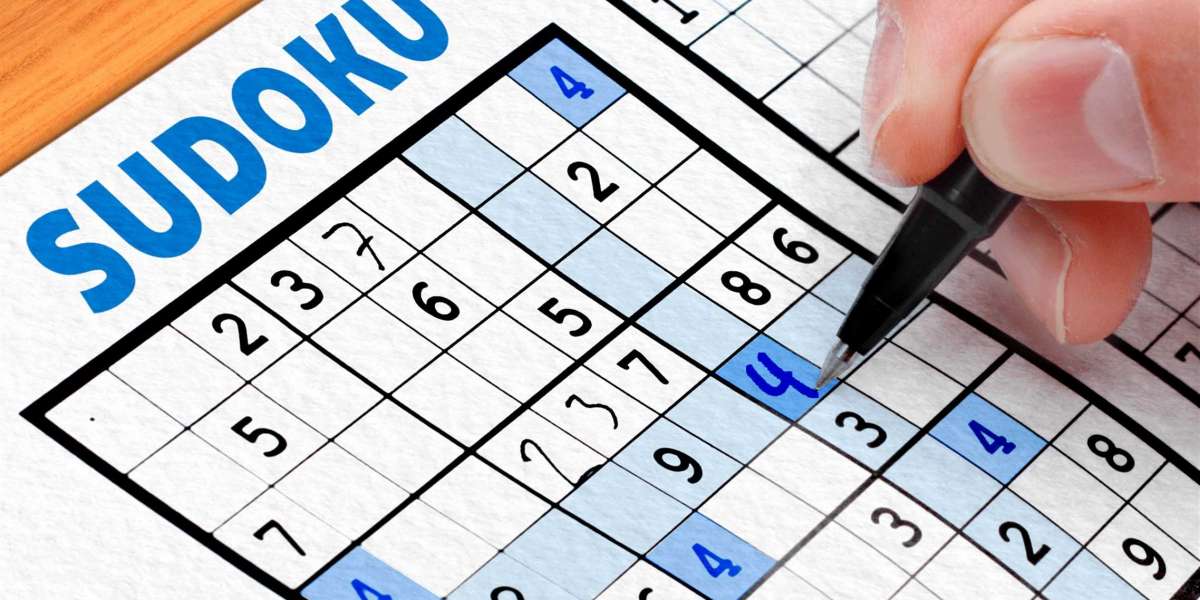I first discovered Sudoku years ago, tucked inside the back pages of a newspaper. I was on a train, bored, and the crossword felt too wordy for my tired brain. The Sudoku grid, on the other hand, looked clean and logical. Numbers from one to nine, no math required, just placement. I thought, How hard could this be?
Spoiler: it was hard.
That First Humbling Experience
I remember staring at that puzzle for almost half an hour. I filled in a few numbers confidently, only to realize I had accidentally repeated a “5” in the same row. The frustration was real. I ended up crumpling the paper in defeat. That day, I learned that Sudoku is not just about guessing — it’s about strategy.
Later, I found myself going back to it. Maybe I’m a glutton for punishment, or maybe there’s just something about Sudoku that hooks you once you’ve tried it. It’s like a battle of wits between you and the puzzle itself. And every time you place a number correctly, it feels like a small victory.
The Rhythm of Solving
When I play Sudoku now, I notice a rhythm. At the beginning, it feels slow and awkward, like walking through fog. I scan rows, columns, and squares, hunting for the most obvious placements. Then, little by little, the puzzle starts opening up. It’s almost like it wants you to solve it, but only if you pay enough attention.
There’s this magical moment when the numbers start cascading. You fill one in, and suddenly another becomes obvious, and another after that. It’s like toppling dominoes — a chain reaction of logic. That’s the addictive part. That’s when I lean back in my chair with a grin and think, Yes, I’ve got this.
A Battle With the “Hard” Puzzles
Of course, not every puzzle goes smoothly. I once spent two hours stuck on a single “hard” Sudoku level on my phone. I was convinced I had made a mistake somewhere but couldn’t find it. My brain was practically overheating. At one point, I nearly gave up and pressed the “hint” button.
But stubbornness won. I put the phone down, took a short walk, and came back with fresh eyes. And there it was — a sneaky little “7” in the top-left grid that unlocked the whole thing. The rush of satisfaction I felt in that moment was ridiculous. It was just a game, but it felt like I had conquered Mount Everest.
Sudoku as a Daily Ritual
These days, Sudoku has become part of my daily routine. I don’t always tackle the hardest puzzles — sometimes I just play an easy one while waiting for my coffee to brew. Other times, I challenge myself with an “expert” grid when I really want to push my brain.
It’s funny how such a simple game can become a form of meditation. When I’m solving, I’m not thinking about emails, deadlines, or the messy laundry pile in the corner. My mind is focused, calm, and oddly peaceful. It’s like all the noise of life fades into the background, leaving only the puzzle and me.
Lessons I Didn’t Expect
The more I play Sudoku, the more I realize it’s not just a game. It has taught me little life lessons in disguise.
Patience pays off. You can’t force a solution. Sometimes you just need to slow down, recheck the basics, and the answer will reveal itself.
Details matter. One careless mistake early on can mess up the whole puzzle. In life too, small oversights can snowball into big problems.
Persistence wins. Even the hardest puzzle is solvable if you stick with it. That mindset has carried over into other challenges outside the game.
Who knew a grid of numbers could double as a life coach?
My Funniest Sudoku Memory
One of my funniest Sudoku moments happened on a long flight. I had downloaded a batch of puzzles on my tablet, thinking I’d kill time solving them. The man sitting next to me noticed and asked, “Oh, are you good at that game?” I laughed and said, “Decent enough.”
Not ten minutes later, I was completely stuck on an easy puzzle. He glanced over and, with a grin, pointed out a missing “3” I had overlooked. We ended up solving the rest together, row by row, like teammates. It turned a boring flight into one of the most enjoyable I’ve ever had. Sometimes Sudoku isn’t just about logic — it’s about connection.
Small Tips That Help Me
Over time, I’ve developed a few little habits that make Sudoku less frustrating:
Start with the obvious. Always scan for rows or columns where a number is nearly complete. Those easy wins build momentum.
Use pencil marks. Whether on paper or an app, jot down possible numbers in a square. It helps you see patterns you might otherwise miss.
Take breaks. When you’re stuck, walk away. Fresh eyes often spot what tired eyes can’t.
Don’t rush. The game isn’t about speed; it’s about accuracy. Enjoy the process.
These aren’t revolutionary strategies, but they’ve saved me a lot of headaches.
Why I Keep Coming Back
At its core, Sudoku is simple. No flashy graphics, no fancy rewards — just a puzzle and your brain. And yet, that simplicity is exactly what makes it so compelling. It’s like mental exercise disguised as fun. Every solved grid feels like proof that you’re capable of focus and clarity, even on messy days.
Sometimes, when I finally fill in that last empty square, I sit back and admire the completed grid as if it were a piece of art. It feels whole, balanced, and satisfying in a way that few things do. That’s why I keep coming back.
Wrapping Up
Sudoku has become more than just a game for me. It’s a mix of frustration and joy, challenge and relaxation, logic and intuition. Some days it drives me crazy, other days it feels like therapy. But no matter what, it always gives me a little spark of satisfaction when I finish.








